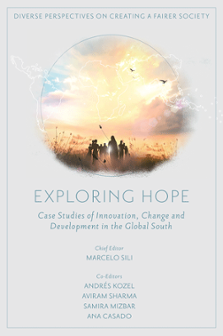The Government of Brazil established their Sustainable Palm Oil Production Programme (SPOPP) in 2010, which sought to enhance the sustainability and inclusiveness of oil palm development in the Amazon. This paper evaluates how well oil palm contract farming promoted by SPOPP has delivered on its inclusive development objectives. Drawing on cross-section data collected in Northeast Pará, it analyses two recurrent SPOPP themes, namely (1) equitable participation and (2) labour allocation to plantation management. Our analysis demonstrates that household availability of land and labour resources strongly shapes patterns of inclusion and exclusion. Moreover, findings reveal that labour time allocation is influenced by hiring of external labourers, which increases when households are labour and land poor. These results give reason to question the utility of labour-oriented contract farming eligibility criteria, revealing important inclusive business and value chain development dilemmas.
Download:
DOI:
https://doi.org/10.1080/00220388.2021.1919629
Altmetric score:
Dimensions Citation Count:

























